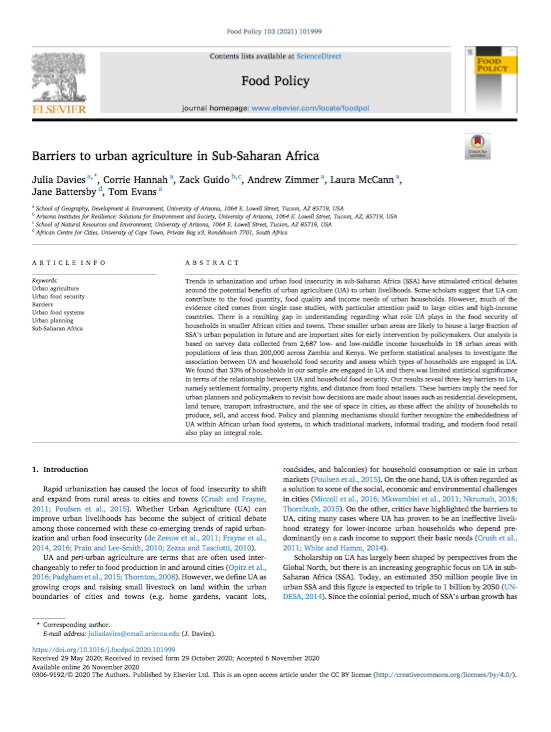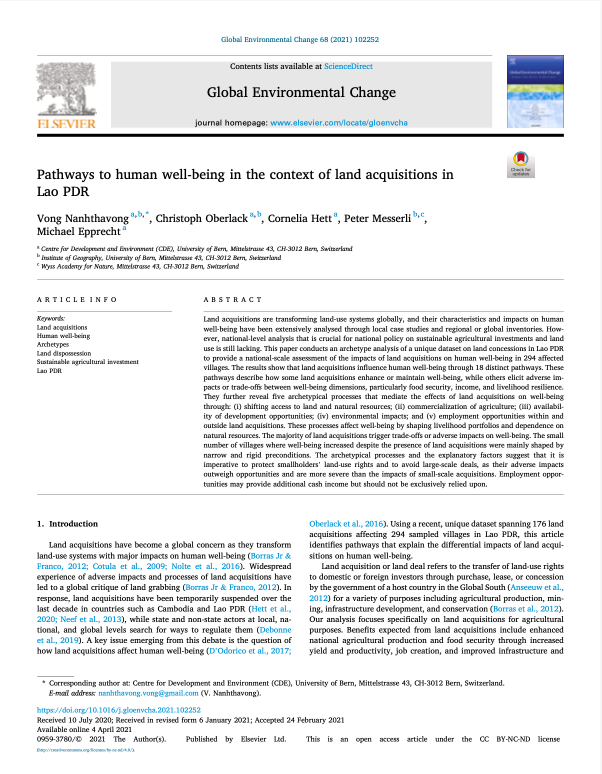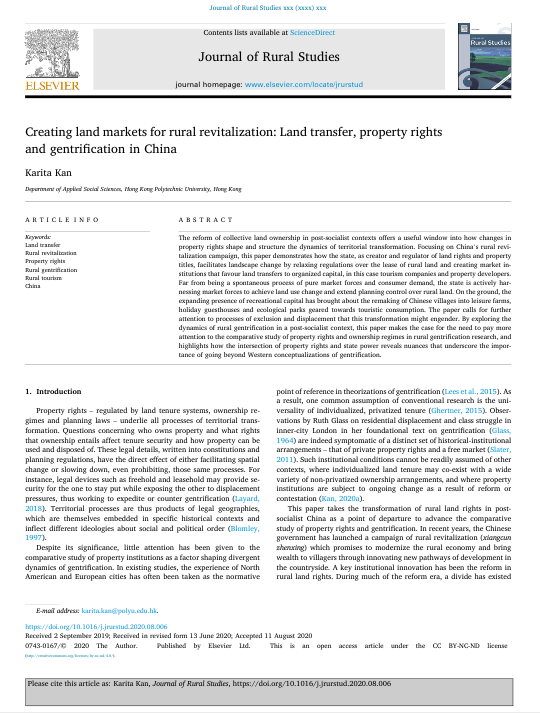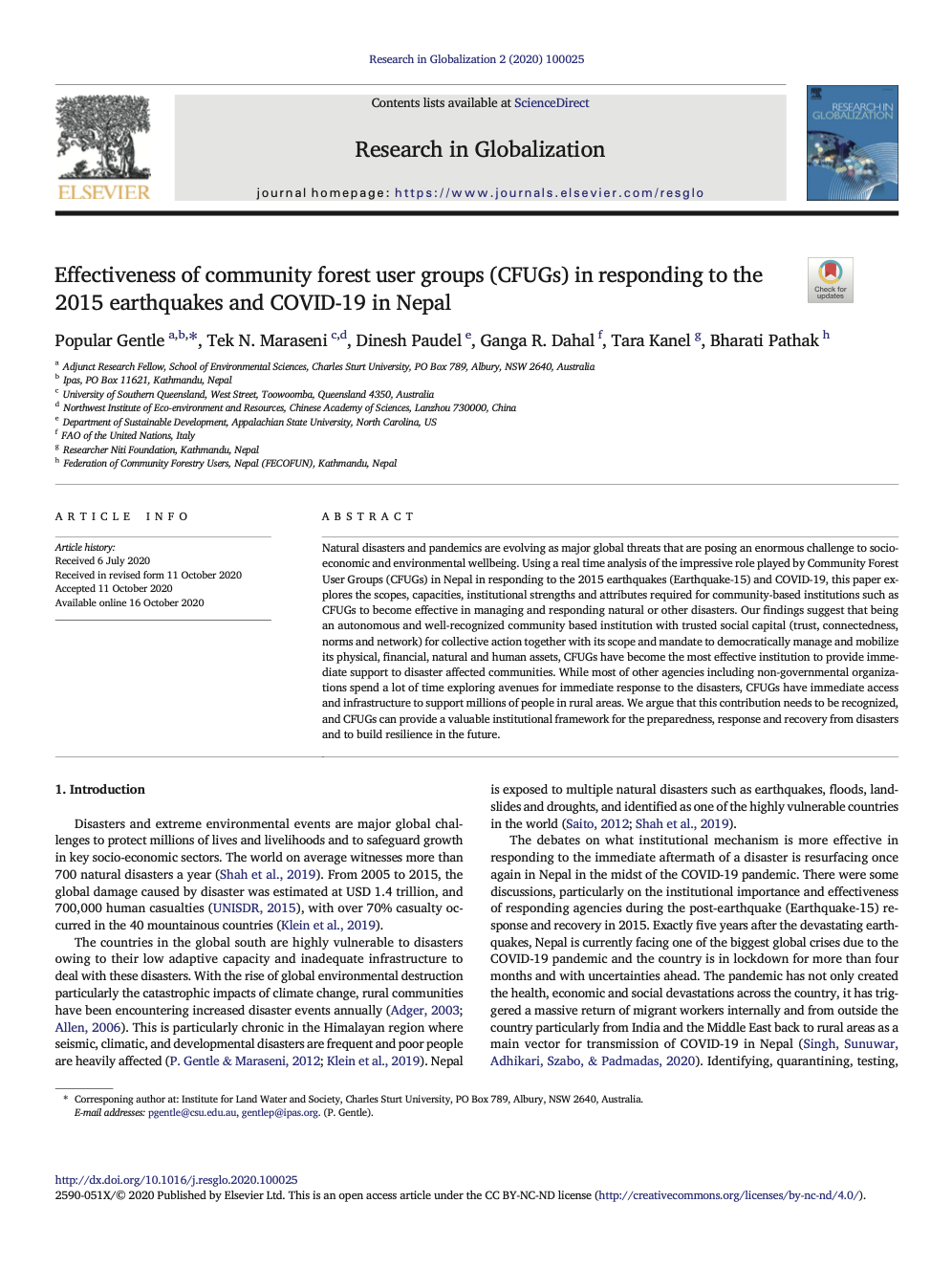Elsevier is a world-leading provider of information solutions that enhance the performance of science, health, and technology professionals.
All knowledge begins as uncommon—unrecognized, undervalued, and sometimes unaccepted. But with the right perspective, the uncommon can become the exceptional.
That’s why Elsevier is dedicated to making uncommon knowledge, common—through validation, integration, and connection. Between our carefully-curated information databases, smart social networks, intelligent search tools, and thousands of scholarly books and journals, we have a great responsibility and relentless passion for making information actionable.
Members:
Resources
Displaying 11 - 15 of 1605Barriers to urban agriculture in Sub-Saharan Africa
Pathways to human well-being in the context of land acquisitions in Lao PDR
Land acquisitions are transforming land-use systems globally, and their characteristics and impacts on human well-being have been extensively analysed through local case studies and regional or global inventories. However, national-level analysis that is crucial for national policy on sustainable agricultural investments and land use is still lacking. This paper conducts an archetype analysis of a unique dataset on land concessions in Lao PDR to provide a national-scale assessment of the impacts of land acquisitions on human well-being in 294 affected villages.
Plantations, women, and food security in Africa : interrogating the investment pathway towards zero hunger in Cameroon and Ghana
The paper critically engages with sustainable development goal targets (SDG-2- Target 2.3; SDG-5) to examine how and why large-scale agricultural land acquisitions modify the social relations of women’s food access. The study draws from impacts of various plantation schemes in Cameroon and Ghana. It argues that the framing of the SDG-2 appears to co-exist alongside promotion of corporate-led agricultural investment.
Creating land markets for rural revitalization: Land transfer, property rights and gentrification in China
The reform of collective land ownership in post-socialist contexts offers a useful window into how changes in property rights shape and structure the dynamics of territorial transformation. Focusing on China's rural revitalization campaign, this paper demonstrates how the state, as creator and regulator of land rights and property titles, facilitates landscape change by relaxing regulations over the lease of rural land and creating market institutions that favour land transfers to organized capital, in this case tourism companies and property developers.
Effectiveness of community forest user groups (CFUGs) in responding to the 2015 earthquakes and COVID-19 in Nepal
Natural disasters and pandemics are evolving as major global threats that are posing an enormous challenge to socio- economic and environmental wellbeing. Using a real time analysis of the impressive role played by Community Forest User Groups (CFUGs) in Nepal in responding to the 2015 earthquakes (Earthquake-15) and COVID-19, this paper explores the scopes, capacities, institutional strengths and attributes required for community-based institutions such as CFUGs to become effective in managing and responding natural or other disasters.






